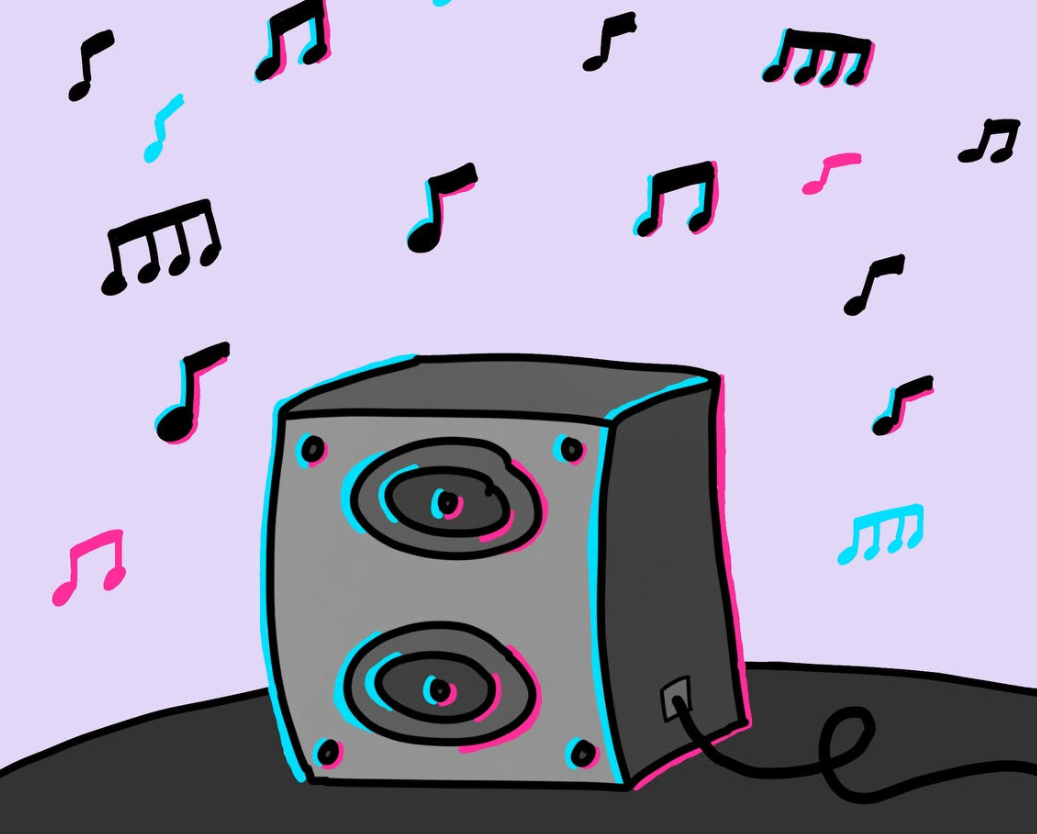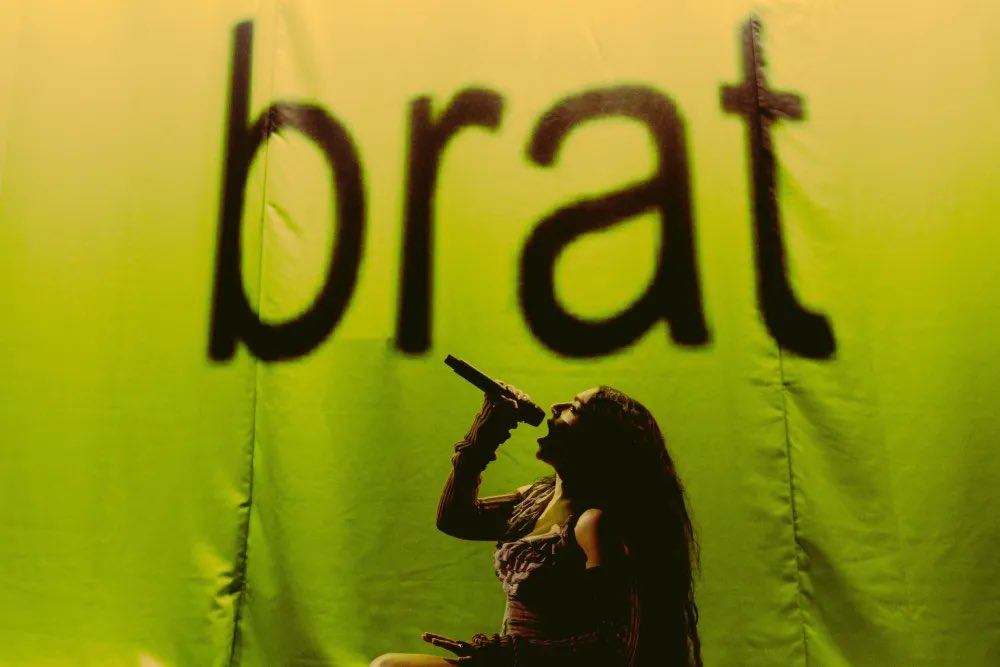Tyler Okonma, more commonly known as “Tyler, the Creator” released his most recent album, “CHROMAKOPIA,” Oct. 28. The album is a major breakthrough for both the artist and the industry as a whole. Tyler released the album on a Monday, breaking the stereotypical Friday release that most artists subscribe to. Tyler, the Creator is known for infusing culture and activism into his works, which fans anticipated would continue with the release of “CHROMAKOPIA.”
Tyler, the Creator first entered the music scene in 2007, co-founding the momentous group “Odd Future.” The group faced heavy backlash due to their often misogynistic, homophobic and violent language. Tyler, the Creator characterized his choice of lyrics from the era as “s— to piss old white people off.” Most of the artist’s early work did just that. In 2015, he met major backlash from an Australian feminist group, Collective Shout, for the language in his first studio album, “Goblin.”
The first hint toward “CHROMAKOPIA” came on Oct. 16th, when Tyler posted a clip on his Instagram with the caption, “1. st chroma.” He dropped a second song, “Noid,” with an accompanying music video Oct. 22. Both “St Chroma” and “Noid” had monochrome color schemes, making fans speculate that the “chroma” in “CHROMAKOPIA,” referred to black-and-white visuals coupled with the green theme of the album cover and promotion material. Some fans even pointed to the final lines of his sixth studio album “IGOR,” which sing, “Don’t get green skin, keep contact.” The opposite color scheme of the two covers — pink for “IGOR” and green for “CHROMAKOPIA” — as well as the use of a solid colored background with black-and-white detailing have led fans to believe that the two are companion albums.
In his studio albums, Tyler, the Creator often introduces multiple alter-egos. In his first release, listeners meet Dr. TC, a psychiatrist who walks Tyler through his deep emotional trauma. In 2017, Tyler introduced Flower Boy, revealing his bisexuality through this alter-ego. Other alter-egos include Igor, a vulnerable version of Tyler in love and Tyler Baudelaire, a version of him that spouts wealth and colorful fashion.
As for “CHROMAKOPIA,” the new alter-ego is St. Chroma, a reference to the book “The Phantom Tollbooth,” written by Norton Juster in 1961. Juster’s character Chroma the Great added color to the universe through his work as a music conductor.
Tyler spoke about creating his album during an event on October 27 when he said, “The album just kinda turned into me taking a bunch of s— my mom told me as a kid.” His messages turned into reflections, as he saw his age group focusing more on family and stability, while he looked for instant gratification.
The album kicks off with “St. Chroma,” a song Tyler teased on his social media with a shorter snippet of the song. The track prompts listeners to listen to the music attentively, and he repeats his repeated statement, “Calm down, sit still.” The message corresponds to his reason behind releasing the music on a Monday rather than a Friday, as he works to shift listeners to new habits when taking in an album for the first time. The extended version of the previously released snippet features Daniel Caesar, a highly anticipated addition.
After the track comes “Rah Tah Tah,” a high-energy beat spouting confidence. The song’s end references his youth growing up with L-Boy, a fellow Odd Future member. The final seconds create a transition into “Noid,” with the repetition of “I’m paranoid now cause n—s weird and really bums.”
“Noid” features WILLOW and a sample from “Nizakupanga Ngozi,” a song by the Zambian band Ngozi Family. The lyrics in Nyanja, a Bantu language, translate to “When you come at my house, please be respectful. Because I don’t like talking too much. Talking too much breeds gossip.” The song touches on the impact of fame on Tyler and the paranoia that ensues. WILLOW has indicated that she has looked up to Tyler throughout her career, giving the feature a special touch.
The track “Darling, I” has similar themes to “IGOR” in its discussion of love and longing. The song opens with a message from Tyler’s mother, Bonita Smith. She warns her son, “Whatever you do, don’t ever tell no b— you love her. If you don’t mean it, don’t tell it.” While the artist criticizes monogamous relationships, he also worries about loneliness without a long-term partner. His music, he explains, is what keeps him fulfilled.
Next is “Hey, Jane.” The song discusses the relationship between the artist and his pregnant partner. The title is a reference to an abortion pill company based in New York named Hey Jane. The artist articulates the debate in his relationship on whether to keep the baby, worrying about the pressures of becoming parents. He assures his partner that he’ll support her decision no matter what and it would be unfair for him to decide for her. The song also presents Jane’s side of the story, as Tyler sings her perspective. The song marks Tyler’s maturity in dealing with heavy situations, showing how he progressed emotionally throughout his musical career.
“I Killed You” references Tyler’s heritage and his need to suppress it. The first verse is an extended metaphor, commenting on his lifelong feeling that his hair had to fit industry standards. He grapples with the pressures of conformity and how it relates to his sexuality, writing, “[…] full of shame so we straighten you out.” The song’s importance cannot be understated as an indication of Tyler’s maturity and developed self-image.
“Judge Judy,” the seventh track, navigates the artist’s sexual relationship with a female partner. He assures her that he doesn’t hold her sexual history or preferences against her, though the relationship eventually comes to an end as Judy tells him she has been diagnosed with a terminal illness. The song begins lighthearted, though it becomes somber as Tyler copes with the sudden news. The storytelling in the track is a beautiful representation of Tyler’s development as an artist.
“Sticky” has the most potential for commercial appeal on the album. The star-studded feature lineup includes Lil Wayne, Glorilla and Sexyy Red. The song discusses personal themes, such as achievements and Tyler’s sexual freedom. Glorilla and Sexyy Red’s features contribute to the track’s initial fierceness while Lil Wayne’s verse bestows flow to the track. The song is a fusion of many different styles and is a perfect example of the artist’s musical ingenuity.
“Take Your Mask Off” is a crucial track, pointing out aspects of society that frustrate Tyler, hoping to influence listeners to be their true selves rather than conform to societal norms. His first verse spouts resentment over how society places cultural pressure on young men, expecting them to be tough and violent. The titular mask serves as a metaphor for a persona that many young boys put on to hide their vulnerability. In the second verse is his criticism of the Catholic church for its homophobic messaging. He articulates the shame that came with his journey of accepting his sexuality, partly due to the church’s rhetoric. The third verse sympathizes with women struggling with their desires and societally enforced duties to their families. The final verse turns inward, as Tyler expresses doubt over his early career writing, “Your audience isn’t racked enough. That shit is a failure,” directly contradicting the lyrics from the opening track, “St. Chroma.”
“Tomorrow,” similar to many other tracks, begins with a message from his mother. She asks for a grandchild, hoping that Tyler will continue her legacy. The song introspects on his personal change and desires for the future. He explains his dissatisfaction with his lack of a solid family structure. He sees his friends having children, while he only has “photos of my ‘Rari and some silly suits.” He references his alter ego, IGOR, as a version of himself that didn’t fully understand the real meaning of life.
“Thought I Was Dead,” the 11th track, delves further into Tyler’s relationship with fame and its expectations. He speaks about his desire to hide from the public gaze saying, “I don’t wanna be found.” The song plays into his “St. Chroma” personality, showing disdain towards those who don’t appreciate his music.
“Like Him,” dissects Tyler’s feelings about the lack of a paternal figure in his life. His mother, featured in the intro and outro of the song, begins by noting the artist’s resemblance to his absent father. As the song progresses, he comes to terms with his dad’s absence and instead focuses on his love for his mother. This is a surprise since she reveals that she didn’t allow Tyler’s father to be in his life, contrasting her earlier characterizations of him as a deadbeat father to Tyler. This climactic finish goes against everything Tyler had believed as a child as expressed in one of his many songs referencing his father. In the outro, his mother expresses regret over her decision to keep his father from his life. She defends his father as a person and asks Tyler for forgiveness, which he grants.
“Balloon,” the second to last track, features a verse by Doechii, who, similar to WILLOW, is a mentee of the artist. Doechii is also a member of the LGBTQ+ community, and identifies with Tyler in her verse, saying “If he is gay, then I am gay, and we are nouns.” The song is an upbeat testimony to Tyler, the Creator’s work ethic and lifestyle.
“I Hope You Find Your Way Home” is the perfect closure to the masterpiece that is “CHROMAKOPIA.” The outro is a calmer collection of sounds and references, which like the rest of the album, has multiple of his mother’s messages. She concludes, “Real s—, I’m proud of you. I’m proud of you, bro. Like, you just never cease to amaze me, like, you just— there’s no words for how I feel. Do your thing, just keep, keep shinin.”
The album seems to bridge all of Tyler’s identities together. Throughout, he copes with his father’s absence, his sexuality and his self-image. The collection is incredibly vulnerable and introspective, focusing on what Tyler cares about most — family, love and music.
“CHROMAKOPIA: THE WORLD TOUR” will begin Feb. 4 in St. Paul, MN, with tickets expected to sell out nearly immediately. With this album, Tyler, The Creator has shown the world that he is currently in his prime. His fans highly anticipate what comes next, with hope for his musical genius to continue.
















GiGi S JACKSON • Mar 19, 2025 at 3:10 am
We just came from Tyler’s “Chromokopia” concert in Austin,TX. I am not a fan of rap but of Gospel music. I can say that was one of the best rap concert. I did not know that one man could put on such a great concert. I loved his songs because I could feel his heart even though I did not know any of his music. Good job “Tyler the Creator”.